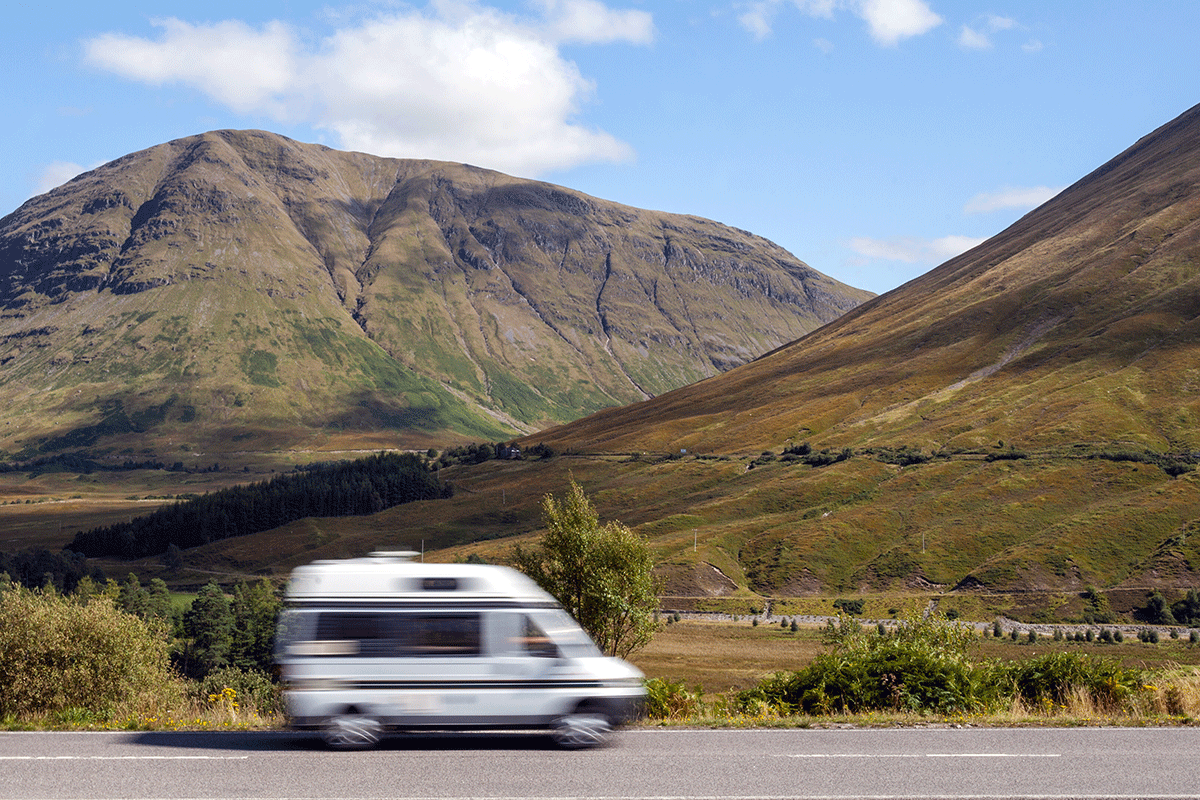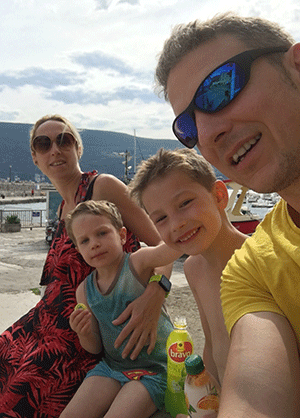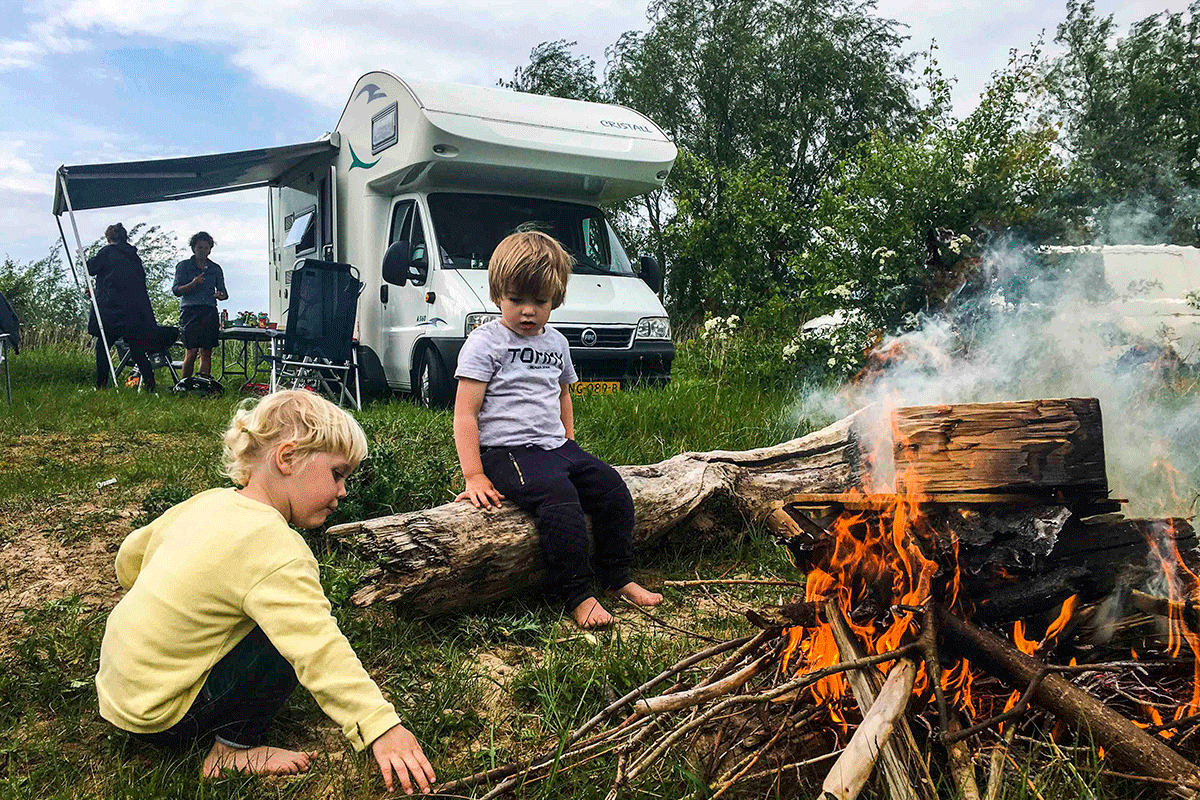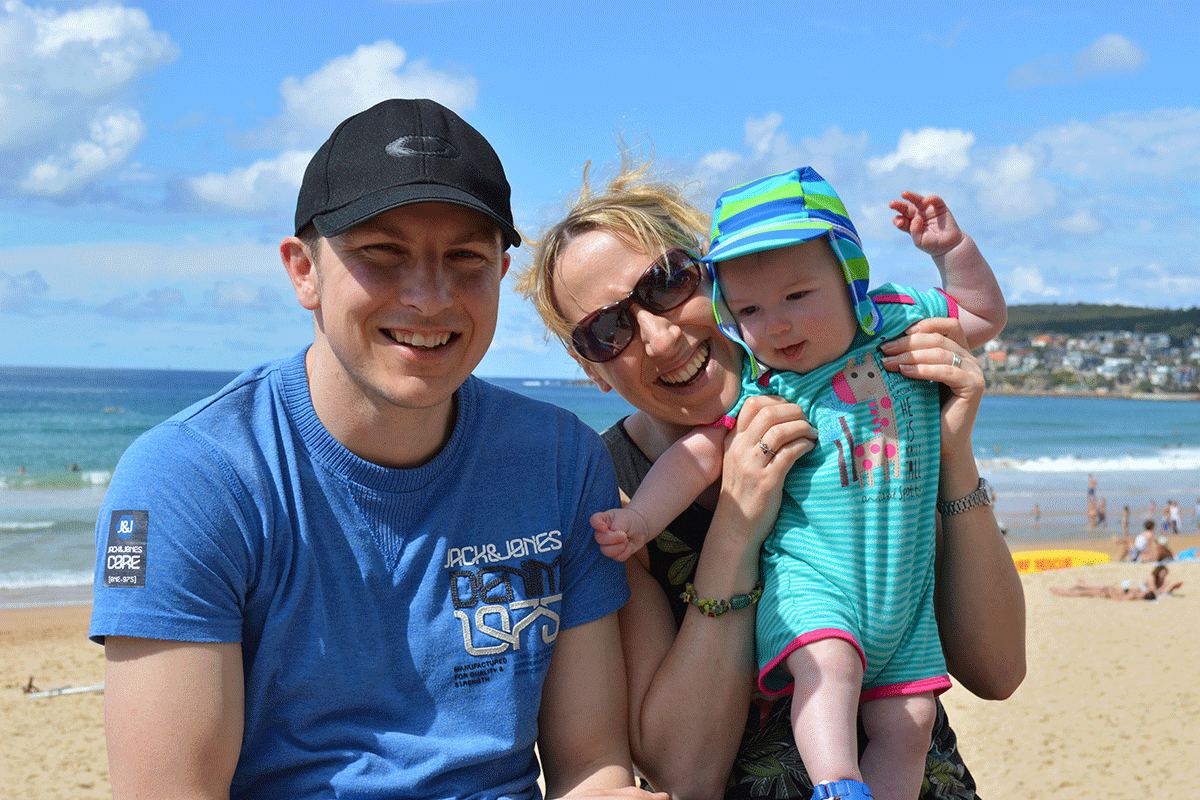Our big family road trip: How we budgeted for a five-week adventure
Rather than moan about the cost of flights and accommodation during the summer holidays, one writer deci…
25th March 2020 14:10
by Lily Canter from interactive investor
Rather than moan about the cost of flights and accommodation during the summer holidays, one writer decided to take advantage of the long school break and plan the road trip of a lifetime with her family. In a two-part series, she explains how to budget for a family road trip

Ever since reading the John Ahern autobiography On The Road… With Kids, my husband and I have dreamt of having our own family adventure. So this year we are taking the plunge. As soon as school finishes in July we’re heading off on a five-week road trip with our boys, Ivor, four, and Byron, seven.
In 2018, we all spent five nights in a tiny campervan and had an amazing time in the Peak District. Now the kids are a bit older we want to raise the bar and are planning three weeks in the Scottish Highlands, followed by a couple of weeks pootling around England visiting beaches, friends and doing the whole touristy thing.
For our main stint we wanted to go somewhere with dramatic landscape and a sense of remote wilderness, and Scotland seemed to tick these boxes.
Byron, the more adventurous of our boys, is looking forward to fell running with me, while Ivor is ecstatic that our mobile accommodation has a built-in television.
Although our route is yet to be mapped out, the budget is. We have estimated around £7,000 for the five weeks – which we thought was pretty good value seeing as we spent £3,500 on two weeks in Montenegro last year.
Finding a set of wheels

The first, and most expensive hurdle, was finding a suitable, not to mention affordable, set of wheels. We wanted something compact enough to easily drive along small winding roads but with home comforts like a bathroom and decent kitchen. Initially I contacted large rental companies specialising in motorhomes but their prices were ludicrous. It would have been cheaper for us to stay in a hotel, especially once they started piling on charges for extras like bedding, crockery, garden furniture, air con and insurance.
Fortunately, I came across the website Camptoo, the Airbnb of campervans, which connects customers with private owners wanting to hire out their caravans and motorhomes.
We were able to find a compact four-berth motorhome with a toilet, shower and television for 35 nights for £3,402. This included an impressive 25% discount since it was a long booking over 28 days. The price also includes a booking fee, flexibility to cancel or change dates, cleaning costs and insurance.
Our ‘home away from home’ comes with air conditioning, heating, cooking equipment, crockery and a bicycle rack all at no extra cost and the kitchen is equipped with an oven/grill, duel-fuel hob, microwave and sink. So, we’re paying £97.20 a day for accommodation and a vehicle for four people. To secure the booking we had to pay a £425 deposit and we need to pay the rest two months before we set off.
Camptoo has vehicles across the country but we restricted our search to a 90-minute drive from home. This means we can pick up the motorhome and bring it home to pack, rather than hauling our stuff halfway across the country.
The beauty of hiring from a private owner is that they can answer your questions, but you still have the security of Camptoo if things go wrong. We are hiring our motorhome from a lovely couple in Loughborough and they have even invited us to take a look months before our rental date, to find out how everything works.
Fuelling your journey
One thing we had not realised is that there is a limit on the number of miles that you are allowed to do when you hire a motorhome. Our hire includes 1,750km (1,087 miles) a week and if you go above that you pay 14p per kilometre.
This is usually worked out as an average across the whole booking so we have 8,750km to play with, which should be plenty.
The bulk of our mileage will be used travelling up to northern Scotland but once there, the journeys will be much shorter.
We have factored in a budget of £500 to £1,000 for fuel, which is based on 40 miles a gallon, the average for the vehicle type.
We also aim to keep within our mileage allowance. This budget is based on the current average UK price of fuel at the time of writing, which is £128.25 per litre.
Camping costs

Aside from the amazing scenery, part of the draw of Scotland was the Land Reform Act 2003, known as the right to roam, where you are allowed to camp for free without a vehicle on unenclosed land. However, wild camping with a vehicle is more restricted particularly in tourist hotspots
or if you are stopping overnight in a layby.
There are websites (goboony.co.uk) that guide campervanners to isolated spots where stopping is tolerated, and we hope to make use of this during our journey.
When we travel around England, we plan to spend some time parked on a friend’s land so again there will be no campsite costs.
However, for at least half of our trip we anticipate staying at campsites with electric hook-up so we can make use of the facilities, get rid of waste and refill our water.
During the peak season, campsite prices can vary from £20 to £40 a night depending on the location and facilities available. A farmer’s field with electric hook-up and a toilet block may be £20 while a site with a playground, pub and outdoor swimming pool could double the budget. We have set aside a maximum of £700 to cover camping costs. We expect to mix up basic campsites with a few more luxurious stops when we are in desperate need of an on-site pub and playground.
We are also planning to join the Caravan and Motorhome Club for £54, which includes two adults and all children under 18. This will give us discounted camping rates and considerable savings on tourist attractions, clothing and meals out.
Food, drink and activities

Since we will have a full functional kitchen with a decent size fridge in the motorhome we have no excuse not to cook and we’ll stick with our normal budget of £75 a week.
I’m a big fan of shopping in Aldi and Lidl to save money and we can bring plenty of supplies with us from home such as oils, herbs and spices. A quick Google search shows there are several Lidls in the most northerly parts of Scotland including one on the island of Orkney, which will help us to keep costs down.
The beauty of the motorhome is that even when we are out and about we can pop back to the vehicle for a spot of lunch or pack a picnic in the morning. But it is still a holiday after all, so we’ve budgeted to eat out once a week or so – not just to give us an occasional break from cooking but also so we are able to experience fresh Scottish seafood that we may not feel equipped to cook.
Our activity fund is £1,500 to £2,000, to cover entry prices, meals out, parking and any other associated costs. It works out at £57 a day but some days we may have a free day out at the beach and on others we may spend £100 on an attraction such as a boat trip or theme park.
I hope to keep this closer to £1,500 – we won’t at least be shelling out on swimming lessons and holiday clubs over the summer so that will save us £400 or so that can be put toward our activity fund.
Total costings
Motorhome hire | £3,402 |
Fuel | £500 to £1,000 |
Campsite fees | £700 |
Food and activities | £1,500-£2,000 |
House-sitting | £300 |
Caravan and Motorhome Club fee | £54 |
Minimum cost | £6,456 |
Maximum cost | £7,456 |
Other cost considerations
Leaving our house and two cats for five weeks doesn’t come without a cost attached. In the past we have used people we know to house-sit for us, which has always worked well. Last summer, we paid our 20-year-old babysitter £90 to house-sit for us for two weeks and she did a great job.
Websites like mindahome.co.uk provide free pet and house-sitters but since we live in the fairly quiet Leicestershire town of Market Harborough we are not sure how much demand there would be.
We have currently set aside £300 for a house-sitter but the challenge will be finding someone who is not going away themselves during the summer holiday.
The other major consideration is not working for five weeks. As a freelance journalist I only earn money when writing, and my husband runs his own business.
I plan to work part-time while on the road, but I am ensuring that
I earn an extra £200 a month in the six months leading up to the trip, to cover any shortfall. Similarly, my husband is putting aside a contingency fund and will be taking some work with him.
It does also mean we won’t be taking much time off over Easter or the school half terms.
This article was originally published in our sister magazine Moneywise, which ceased publication in August 2020.
These articles are provided for information purposes only. Occasionally, an opinion about whether to buy or sell a specific investment may be provided by third parties. The content is not intended to be a personal recommendation to buy or sell any financial instrument or product, or to adopt any investment strategy as it is not provided based on an assessment of your investing knowledge and experience, your financial situation or your investment objectives. The value of your investments, and the income derived from them, may go down as well as up. You may not get back all the money that you invest. The investments referred to in this article may not be suitable for all investors, and if in doubt, an investor should seek advice from a qualified investment adviser.
Full performance can be found on the company or index summary page on the interactive investor website. Simply click on the company's or index name highlighted in the article.